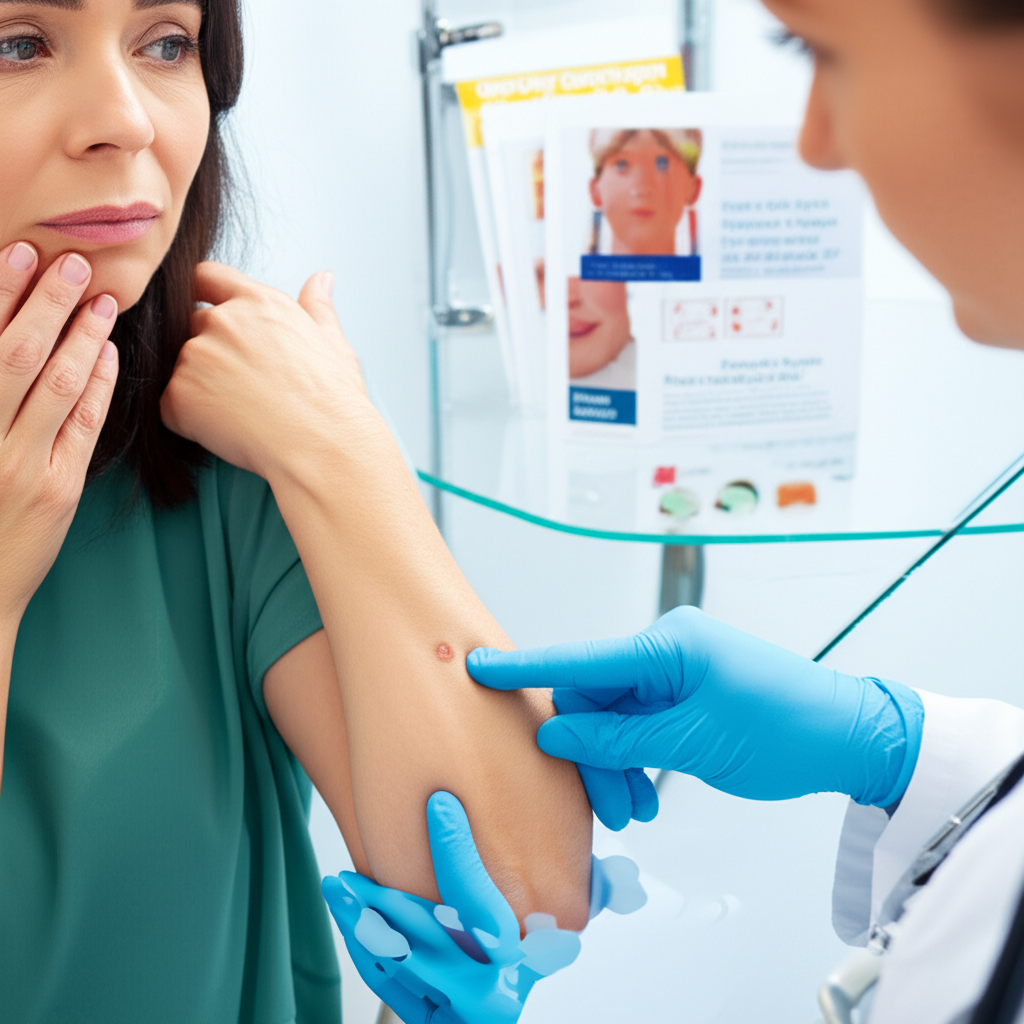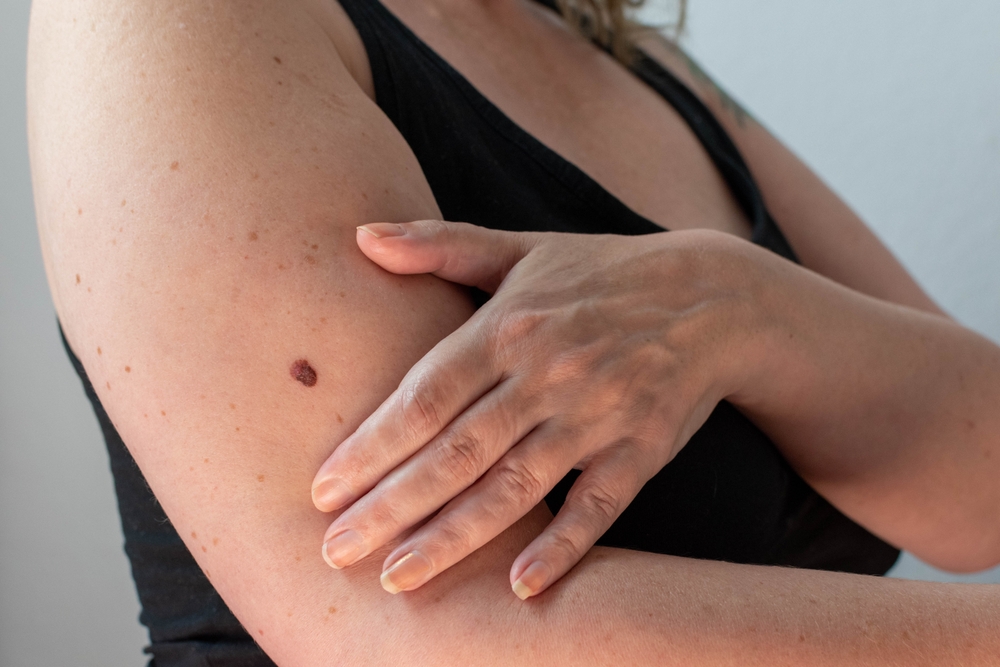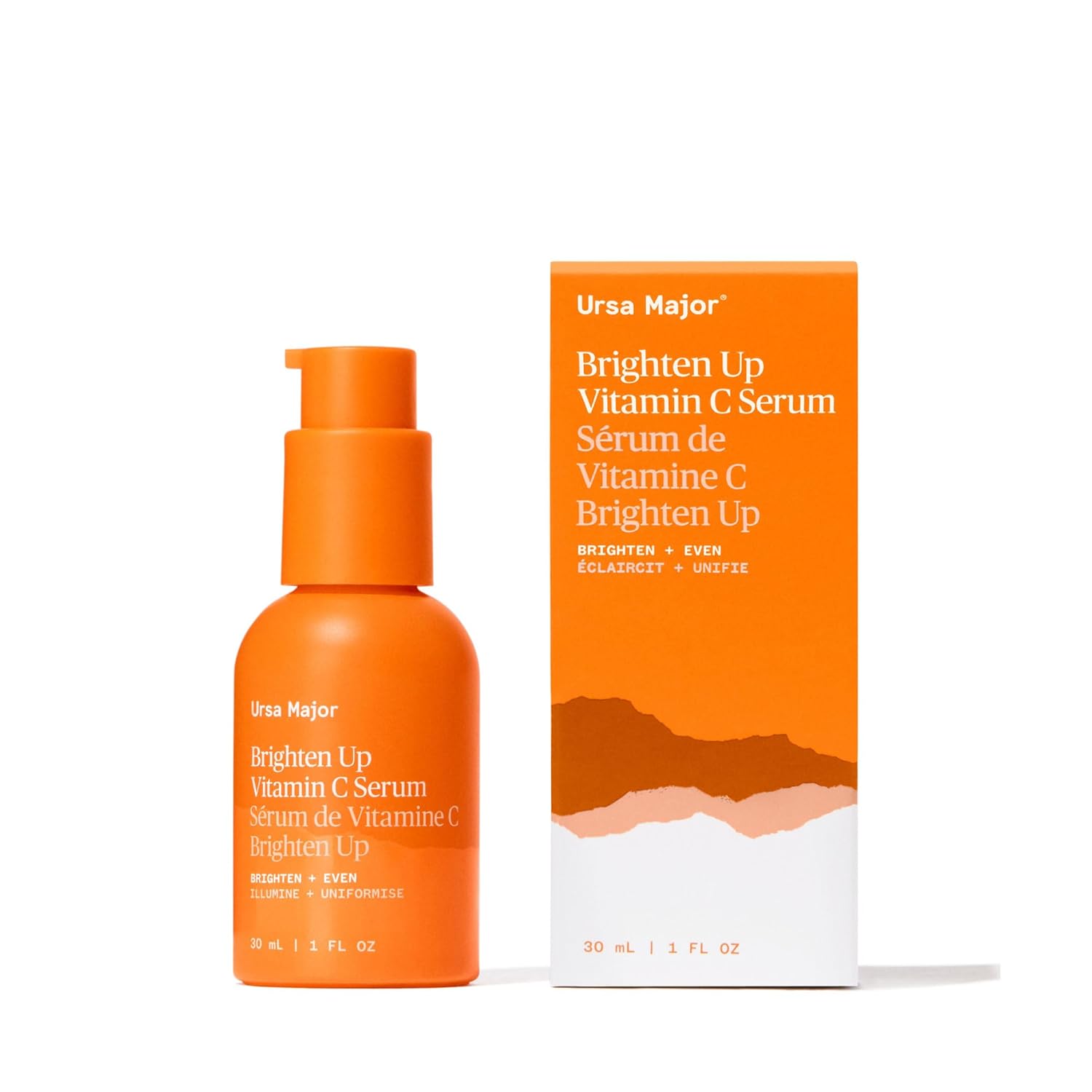Can Urgent Care Diagnose Skin Cancer – Urgent care centers can often diagnose common skin cancers like basal cell carcinoma and squamous cell carcinoma, especially when the presentation is clear. However, for suspicious moles or complex cases, they will likely refer you to a dermatologist for definitive diagnosis and treatment.
Has a new spot or a changing mole on your skin got you a little worried? It’s totally normal to feel concerned, and you want to get it checked out quickly. If you’re wondering whether a visit to your local urgent care clinic can give you answers about potential skin cancer, you’re in the right place! Many people aren’t sure what to expect, and navigating skin health can feel a bit confusing. We’re here to break it down for you, making it simple and reassuring. Let’s find out if urgent care can help you get the answers you need about your skin.
Understanding Urgent Care and Skin Health

Urgent care clinics are fantastic resources for when you need prompt medical attention for non-life-threatening issues, but aren’t quite sure if your primary doctor can see you soon enough. Think of them as a bridge between your regular doctor and the emergency room. They’re equipped to handle a range of common illnesses and injuries, from the flu to minor cuts that need stitches. When it comes to skin concerns, they can often be a very convenient first stop.

Puriya National Eczema Association Accepted Cream
Dry Itchy Skin Relief – Colloidal Oatmeal Lotion – For Kids, Adults, Face, Hands – 4.5 Fl Oz
- Brand: Puriya
- Price: $32.21 $7.16 per fluid ounce
- Shipping to Bangladesh: $26.59
- Size: 4.5 Fl Oz
- Features: Hydrates, Fast Acting Itch Relief, Helps Control Flare-Ups, Healthy Skin
- Ingredients: Aloe Vera, Shea Butter, Amaranth Seed Oil, Hyaluronic Acid, Vitamin C
Your skin is your body’s largest organ, and it’s constantly changing. While many changes are harmless, some can be signs of something more serious, like skin cancer. Early detection is key to successful treatment, which is why it’s so important to get any concerning skin spots checked out promptly. But where do you go for that initial check?
Can Urgent Care Diagnose Skin Cancer? The Short Answer
Yes, in many cases, urgent care centers can provide an initial diagnosis for common types of skin cancer. If you have a mole that looks unusual or a new spot that has appeared, an urgent care physician can examine it. They are trained to recognize the common visual characteristics of basal cell carcinoma and squamous cell carcinoma, which are the most prevalent forms of skin cancer. They can often make a preliminary diagnosis based on visual inspection and your medical history.
However, it’s crucial to understand that their diagnostic capabilities for skin cancer are often limited to common presentations. For anything that looks more unusual, like a deeply pigmented or irregularly shaped mole that might be melanoma, or for complex skin conditions, an urgent care physician will likely recommend a follow-up with a dermatologist. Dermatologists are specialists with advanced training and tools for diagnosing and treating all types of skin cancer.
What Kinds of Skin Cancer Can Urgent Care Identify?
Urgent care physicians are generally adept at identifying the most common types of skin cancer due to their characteristic appearances. These often include:

- Basal Cell Carcinoma (BCC): This is the most common type of skin cancer. It often appears as a pearly or waxy bump, a flat flesh-colored or brown scar-like lesion, or a sore that bleeds and scabs over. BCCs typically develop on sun-exposed areas like the face, ears, neck, or hands.
- Squamous Cell Carcinoma (SCC): This is the second most common type. SCCs can appear as a firm, red nodule, a scaly, crusted patch, or a sore that doesn’t heal. They also commonly occur on sun-exposed skin, including the face, ears, lips, and back of the hands.
While these two are often recognizable to a general practitioner or urgent care physician, spotting them is only the first step. A definitive diagnosis often requires further testing, which a dermatologist is best equipped to provide.
What About Melanoma or Other Rare Skin Cancers?
Melanoma is a more dangerous form of skin cancer that can develop from existing moles or appear as a new dark spot on the skin. Its hallmark signs are often described by the ABCDEs of melanoma:
- Asymmetry: One half of the mole doesn’t match the other half.
- Border: The edges are irregular, notched, or blurred.
- Color: The color is varied from one area to another, with shades of tan, brown, or black, sometimes with patches of white, red, or blue.
- Diameter: Melanomas are often larger than 6 millimeters (about the size of a pencil eraser), though they can be smaller.
- Evolving: The mole is changing in size, shape, color, or elevation, or any new symptom such as bleeding, itching, or crusting.
While an urgent care physician will certainly note these characteristics if present, diagnosing melanoma definitively, especially in its early stages or if it has atypical features, typically requires a biopsy performed by a dermatologist. Similarly, rarer skin cancers like Merkel cell carcinoma or rare sarcomas are usually outside the scope of a typical urgent care initial assessment and will be referred to specialist care.
The Urgent Care Process for Skin Concerns
If you visit an urgent care clinic for a skin concern, here’s generally what you can expect:
- Check-in and Paperwork: You’ll be asked to fill out standard medical forms, including your personal information, medical history, and details about your current concern.
- Vitals: A nurse or medical assistant will likely take your vital signs (blood pressure, heart rate, temperature).
- Physician Examination: A doctor or physician assistant will review your medical history and ask about your skin concern. They will then perform a visual examination of the affected area. They might use a dermatoscope, a handheld magnifying device that can help visualize skin structures, but this isn’t as advanced as the equipment dermatologists use.
- Preliminary Diagnosis: Based on the examination, the provider might suggest a potential diagnosis, such as a common mole, a benign lesion, or a suspect lesion that could be skin cancer.
- Recommendations: If they suspect skin cancer or something that requires further investigation, they will provide a referral to a dermatologist. For benign conditions, they might offer treatment or advice on how to manage it.
- Biopsy (Unlikely at Urgent Care): It’s highly uncommon for urgent care centers to perform skin biopsies. Biopsies are a critical part of confirming a skin cancer diagnosis and are usually done by dermatologists or surgeons.
When to Go to Urgent Care vs. a Dermatologist
Knowing where to go can save you time and ensure you get the most appropriate care. Here’s a helpful guide:
| Scenario | Recommended Location | Why |
|---|---|---|
| A new mole that looks suspicious (irregular shape, color, border, size changes). | Dermatologist (if accessible quickly) or Urgent Care. | Early detection is crucial for melanoma. Dermatologists are specialists, but urgent care offers faster access for initial assessment. |
| A sore that isn’t healing on sun-exposed skin. | Urgent Care or Dermatologist. | Could be a sign of basal or squamous cell carcinoma. Urgent care can provide an initial diagnosis, but a dermatologist will confirm and treat. |
| A red, scaly patch that seems to be growing. | Urgent Care or Dermatologist. | Possible squamous cell carcinoma. Similar to the above, urgent care offers quick access. |
| A long-standing, stable mole that you’ve had for years. | Your Dermatologist (for routine check-ups). | While likely benign, regular skin checks by a specialist are recommended, especially if you have risk factors. |
| A rash or irritation that is not concerning for cancer. | Urgent Care or your Primary Care Physician. | Urgent care is suitable for quick treatment of common rashes. |
| Acne or minor blemishes. | Dermatologist or over-the-counter solutions from a drugstore. | Specialty care for specific skin conditions, or home care for common issues. |
The key takeaway is that if you have any doubt or your skin concern presents features outlined in the ABCDEs of melanoma, a dermatologist is your best bet for a definitive diagnosis and comprehensive management. The American Academy of Dermatology offers excellent resources for understanding skin cancer and finding a dermatologist in your area.
Urgent Care vs. Dermatologist: Pros and Cons
Let’s weigh the benefits and limitations of each option when it comes to skin cancer screening:
Urgent Care:
Pros:
- Accessibility and speed: Often easier to get an appointment quickly, sometimes even on the same day.
- Cost-effective for initial assessment: Can be cheaper than an ER visit for non-emergencies.
- Convenience: Widely available in most communities.
Cons:
- Limited specialization: Physicians aren’t skin cancer specialists; their diagnostic tools and knowledge are more general.
- Biopsies are rare: They typically don’t perform biopsies, so you’ll likely need a referral for confirmation.
- May miss subtle signs: Might not catch early or less common forms of skin cancer as effectively as a dermatologist.
Dermatologist:
Pros:
- Expertise: Highly trained in all types of skin conditions, including all forms of skin cancer.
- Advanced diagnostic tools: Use specialized equipment like high-powered dermascopes for detailed skin examination.
- Biopsy and treatment capabilities: Can perform biopsies in-office and offer a full range of treatment options.
- Comprehensive skin exams: Offer full body skin checks to identify potential issues you might not see yourself.
Cons:
- Appointment availability: Can sometimes have long waiting times for appointments.
- Higher costs: Specialty care often comes with a higher price tag, though insurance typically covers necessary procedures like biopsies.
For peace of mind and the most accurate diagnosis, especially for concerning moles, seeing a dermatologist is generally the gold standard. However, urgently care can be a valuable resource for a prompt initial look if a dermatologist isn’t readily available.
What to Tell the Doctor at Urgent Care
To make your visit as effective as possible, be prepared to provide clear and concise information. Here’s what to tell the doctor:
- When did you first notice the spot/mole?
- Has it changed in size, shape, color, or appearance? If so, how and when?
- Does it itch, bleed, or hurt?
- Are you experiencing any other symptoms related to the spot?
- Have you had any previous skin cancer diagnoses or a history of significant sun exposure/tanning beds?
- What is your family history of skin cancer?
Being thorough with your answers will help the urgent care physician get a clearer picture and make the best recommendation for your next steps.
The Importance of Early Detection
The reason we emphasize getting skin concerns checked is the critical role of early detection in successfully treating skin cancer. When caught early, most skin cancers, including melanoma, have very high cure rates. For instance, the survival rate for melanoma diagnosed at its earliest stages is around 99%. As melanoma progresses and spreads to other parts of the body, the survival rate drops significantly. This makes proactive skin checks and prompt evaluation of new or changing spots absolutely vital for your long-term health and well-being.
The Skin Cancer Foundation highlights that regular self-exams and professional check-ups are the best defense against skin cancer. Don’t wait to get that concerning spot checked – your future self will thank you!
Frequently Asked Questions (FAQ)
Q1: Can urgent care perform a skin biopsy to diagnose cancer?
A1: Generally, no. Urgent care centers are not typically equipped to perform skin biopsies. If a skin cancer diagnosis is suspected, they will refer you to a dermatologist or surgeon who can perform the necessary biopsy for confirmation.
Q2: If urgent care suspects skin cancer, what happens next?
A2: If the urgent care physician suspects skin cancer, they will provide you with a referral. It’s important to schedule an appointment with a dermatologist or a specialized skin cancer clinic as soon as possible. Be sure to bring the referral and any notes from your urgent care visit.
Q3: Is it better to go to urgent care or a dermatologist for a new mole?
A3: For a new or changing mole, a dermatologist is the specialist to see. However, if you can’t get a dermatology appointment quickly, urgent care can provide an initial assessment. Keep in mind that a dermatologist will likely need to confirm any diagnosis.
Q4: How much does it cost to go to urgent care for a skin concern compared to a dermatologist?
A4: The cost can vary greatly depending on your insurance and the services provided. An urgent care visit for an initial assessment might be less expensive than a specialist visit, but if a biopsy is needed (which urgent care won’t do), the total cost for a dermatologist with a biopsy might be higher, though often covered by insurance for medical necessity.
Q5: What if I have a rash that I think might be skin cancer?
A5: While some rashes can be concerning, true skin cancer typically presents as a distinct spot, lesion, or sore that is changing. If you have a widespread rash, it’s more likely to be an infection or allergic reaction, which urgent care can often treat. However, if you have any unusual spots within the rash, or if the rash itself looks concerning, it’s always best to get it checked by a medical professional.
Q6: What are the signs that I should go directly to the emergency room for a skin issue?
A6: You should go to the emergency room if you have a severe skin infection with spreading redness and fever, a deep or large wound that won’t stop bleeding, signs of a severe allergic reaction (like difficulty breathing), or any other life-threatening symptoms. For a suspected skin cancer diagnosis, the ER is generally not the first point of contact unless there are severe complications associated with the lesion.
Prevention is Key for Healthy Skin
While it’s empowering to know where to go for help, the best approach to skin cancer is prevention. Making sun protection a part of your daily routine is your most powerful tool for keeping your skin healthy and beautiful. Think of sun protection not just for preventing cancer, but also for maintaining that youthful, glowing complexion we all aspire to!
- Sunscreen is your best friend: Apply a broad-spectrum SPF 30 or higher sunscreen every single day, year-round, even on cloudy days. Reapply every two hours when outdoors, especially after swimming or sweating.
- Seek shade: Especially during peak sun hours (10 a.m. to 4 p.m.).
- Wear protective clothing: Long-sleeved shirts, pants, wide-brimmed hats, and UV-blocking sunglasses can significantly reduce your sun exposure.
- Avoid tanning beds: Tanning beds emit harmful UV radiation that significantly increases your risk of skin cancer.
- Perform regular self-exams: Get to know your skin and check it monthly for any new or changing spots. Tools like the ABCDEs of melanoma can guide your self-checks.
- Get professional skin checks: See a dermatologist for a professional skin exam at least once a year, or more often if you have a higher risk of skin cancer.
By adopting these simple habits, you’re not only protecting your skin from the sun’s damaging rays but also investing in your long-term health and maintaining a vibrant, radiant glow.
Conclusion
So, to circle back to our main question: Can urgent care diagnose skin cancer? Yes, they can often provide an initial assessment and recognize common types of skin cancer like basal cell carcinoma and squamous cell carcinoma. They are a great, accessible option for a quick check if you’re feeling worried about a new or changing spot on your skin and can’t get into a dermatologist right away. However, it’s vital to remember that for a definitive diagnosis, especially for suspicious moles that might be melanoma, or for any complex skin condition, a referral to a dermatologist is usually necessary. They are the skin experts with the specialized knowledge and tools for comprehensive evaluation and treatment.
Your skin health is a journey, and knowing your options makes it easier to take those important steps. Whether it’s a quick visit to urgent care for an initial look or a timely appointment with your dermatologist for a thorough skin check, staying proactive is key. Embrace these resources, practice good sun safety, and keep an eye on your amazing skin – you’ve got this!



